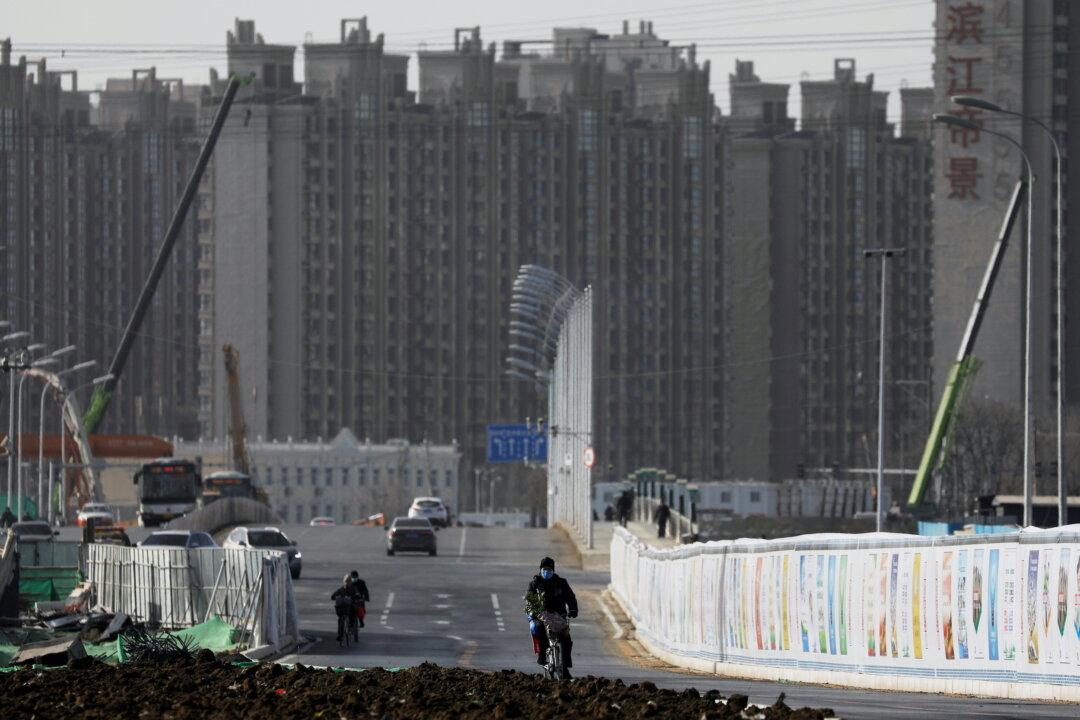BEIJING—The Chinese regime’s revenue from land sales slumped for a fourth month in October compared with year-ago levels, as cash-strapped developers moved cautiously on land buying after tighter regulatory curbs on new borrowing were established.
The value of government land sales in October declined 13.14 percent from a year earlier to $89.90 billion, after suffering a drop of 11.15 percent in September, according to Reuters calculations of data released by the finance ministry on Friday.





